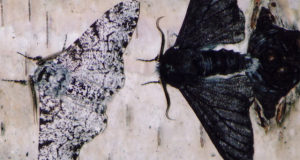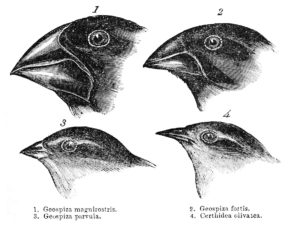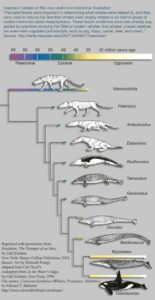It is an oft-heard exclamation among die-hard evolution supporters that “evolution is a fact.” For example, Eugenie Scott, former head of the National Center for Science Education, has said that “…scientists don’t question whether evolution occurred.” As well, popular scientist Richard Dawkins wrote in his book, “The Greatest Show On Earth”:
“Evolution is a fact. Beyond reasonable doubt, beyond serious doubt, beyond sane, informed, intelligent doubt, beyond doubt evolution is a fact…That didn’t have to be true. It is not self-evidently, tautologically, obviously true, and there was a time when most people, even educated people, thought it wasn’t. It didn’t have to be true, but it is….Evolution is the only game in town, the greatest show on earth.”
That definitely leaves little room for uncertainty in the conviction of many staunch evolutionists that agree with Dawkins. But what is often lacking in the context of statements such as these and many conversations and arguments that are had every day is a clear definition of just what any given person means by the term “evolution.” For many, the meaning is self-explanatory and obvious but the truth is that equivocation and ambiguity often runs rampant in discussions of evolution, whether purposefully or accidentally. The real “evolutionary fact” here is that there is a spectrum of categories for what can be considered evolution and a proper understanding of the range of those categories is imperative if one is to expect to argue the issue effectively.
Categories of Evolution
At a fundamental level, the scientific concept of evolution is simply “change with respect to time.” As you can imagine, this concept in and of itself is not controversial. One need not look far to understand that most every type of creature, especially human beings, possess a wide array of traits that differ from one another and that those traits tend to vary over time. Traits such as eye color, hair color, and skin color vary from generation to generation as well as the relative percentage of the population that possesses each trait. In this sense, it is not hard to agree that evolution is indeed a fact.
Which leads us to the first category of evolutionary definitions, that of microevolution. Microevolution simply means the process of variation within a species. This category would include the classic example of the peppered moth in which environmental pressures such as air quality and pollution levels resulted in changing traits. As a result, some members of the specie populations possessed traits, such as body/wing color, that gave them greater survivability and ensured that those traits tended to be passed on more prevalently than the others. Given the shorter time spans of these changes and the relative ease of direct observation, this category of evolution is rather non-controversial.

Similar to microevolution is the category of speciation. The concept of specie and speciation proper is not as hard a science as one would like given the somewhat arbitrary nature of what constitutes a species but it is nevertheless in a category of its own. In short, speciation evolution is long term microevolution due to some level of isolation. There are different categories even within speciation but they tend to center around different degrees of population isolation. An example of speciation might be Darwin’s Galapagos finches. Each island’s population was isolated to a degree and the differing environmental factors and longer time frames allowed for slightly more distinct features to develop between the different populations to the point in which they represented distinct species.

In the same vein, but on a much grander scale, is microbial evolution. Due to the mechanism of evolution, the unique reproductive cycle of gestation and maturation, the possible power of that evolutionary mechanism is therefore limited by the population size and the amount of time it takes for each generation to mature. On a microbial level, that mechanism has much more potential and far shorter turnarounds than that of birds, mammals, or even insects. Microbial evolution applies to viruses, bacteria, and single-celled organisms. In general, beneficial mutations are rather rare in their occurrence but due to the sheer scale of microbial populations and shortened reproduction timeframes, those changes occur more frequently and can be observed much more quickly.

This leads us to the last two categories of evolution, that of macroevolution and chemical evolution. Macroevolution encompasses many of what are considered the more controversial claims that one hears regarding evolution today. Macroevolution includes the theory of common descent, the idea that all life has descended from some simpler organism before it, including the claim that human beings are descended from a common ape-like ancestor. According to the theory, that sort of long term change is possible by a population changing over time so much that they gradually gain and/or lose fundamental traits such that, eventually, this process produces the full breadth of the “body plans” seen in nature.
In a similar manner, chemical evolution would claim that chemical processes alone can result in life. Given the history of the Earth, outside of some external influence, chemical evolution is necessary to explain what is called the Origin of Life through abiogenesis. This type of evolution is what is referred to whenever one mentions or evokes the “primordial soup”. These last two categories of evolution would tend to be considered together by those who believe evolution has great creative power and explains the full history of life on Earth, though they do not necessarily depend on one another. For instance, one could hold to macroevolution while denying chemical evolution and positing some alternate source or mechanism for the Origin of Life itself.
What Do We Make of All of This?
So, now that we are familiar with these categories and the variety of what is often meant by “evolution”, what are we, as Christians, to make of it all? Confronted by the claims of scientists and laymen alike that evolution fully explains the history of life on Earth and that a creator and designer of life has been shown to be fully unnecessary, should we accept evolution as fact or continue to hold to Biblical yet contradictory ideas?
The problem we encounter in discussions of evolution is that there is often a subtle shift or equivocation along the way concerning exactly which category of evolution is being addressed at any given moment. For instance, I have been in discussions in which something like dog breeding or chicken breeding or antibacterial resistance has been called out as showing that evolution is a fact, and strictly speaking, this is true. Knowing what we have learned above, the idea that a certain population of organisms can be isolated and manipulated in the way that they reproduce and, hence, that the traits they possess over time would change, is certainly one category of evolution. However, the inference here is then often extrapolated to mean that, because evolution can be observed in this way, that it naturally follows that other understandings of evolution must also be true. But this is certainly not logically necessary and the case for one must be made separately from the case for the other.
As Christians, the first three categories of evolution, microevolution, speciation, and microbial evolution, do not represent a threat to the Judeo-Christian worldview and are supported by many different lines of evidence, from direct observation to genetics. It is the last two categories, that of macroevolution and chemical evolution, that the Christian comes up against possible contradictions with what is commonly understood to be revealed through scripture. Knowing the importance of these evolutionary categories is therefore important to our discussions with other Christians and non-believers who may see evolution as a discredit to the Christian worldview. That is not to say that there are not otherwise sincere or orthodox Christians who would hold to the full categories of evolution and would attempt to reconcile those with Christian beliefs. But the case to be made for microevolution looks very different than that of macroevolution and chemical evolution and we should not be afraid to make these worthwhile distinctions.
It is my hope that knowing these definitions of evolution will give you a sense of confidence and empowerment to engage in conversation and challenge those who would raise up evolution as a discouragement to believers. In the future, we will continue to look at interesting and controversial topics in the area of creation, evolution, and intelligent design that will help you make the case for the God of the Bible and His hand in the history of life.

